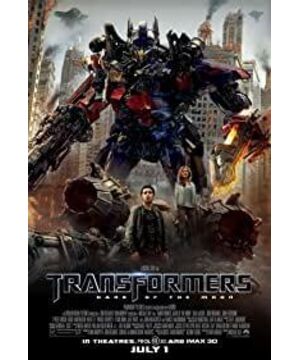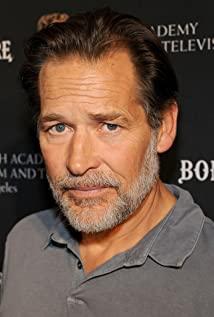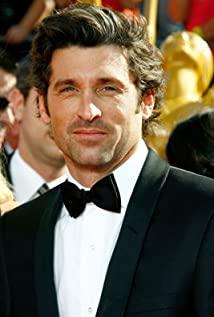I tend to regard the "Transformers 3" box office boom in Chinese theaters as a special phenomenon, a special case in the commercial operation of Hollywood films. The box office of the zero-point screening exceeded 10 million, the box office on the first day was nearly 100 million, and the box office was 400 million in four days. These "miracles" far surpassed last year's "magical work" "Avatar". This is so sad! While "Transformers" isn't exactly a movie aimed at the Chinese market, Chinese audiences have ignited their childhood nostalgic enthusiasm. For the generation born in 75-85 (they are the main force of theater audiences), in their culturally deficient childhood, the cartoon of that year is one of the few cultural memories worth cherishing, a dark childhood. A bright color in the middle is the "homeland" they sang nursery rhymes before they were burnt down. Their feelings for it are mixed with childhood ecstasy and sentimental nostalgia. To watch this movie is to be faithful to childhood memories; to take children to see this movie is to share childhood memories. In addition to the "rising tide" effect brought about by the rapid development of the Chinese film market, this cultural complex is an important factor in creating the Chinese box office miracle of "Transformers".
If the first part of this series just landed in China in 2007, nostalgia was just a pure spontaneous impulse, and the filmmakers still regarded the enthusiasm of unexpected gains in China as some kind of luck, then when the third part this summer " When Transformers hits again, Hollywood has shrewdly turned nostalgia into a lucrative business—as long as the audience's enthusiasm isn't overdone. The Chinese commodity advertisements that can be seen everywhere in the film not only show that China has become the most important audience market for the film besides the United States, but also seem to imply the confidence of the filmmakers and merchants in the influence of the "Transformers" symbol in China. Fortunately, Hollywood still has a certain bottom line, otherwise we can only accept a bumblebee drinking a certain brand of milk.
The film's rave reviews, especially among critics in North America, stand in stark contrast to its popularity in China. The famous American film critic Roger Ebert bluntly said that this is "a visually ugly film", full of "inconsistent plots, wooden characters and inexplicable dialogues." "New York Times" film critic A.O. Scott named the second "Transformers" the worst movie of the year that year, seeing it as "a sign that our once-proud civilization is in steep decline." For this year's film, he was even more speechless: "I can't tell whether it's the film's unimaginable mental retardation that makes people stupid, or whether it's so great that it disintegrates all reason. There may be no difference between the two!" These words may hurt the feelings of some Chinese audiences, and many people will probably ask silently, "Are we watching the same movie?" The elite consciousness of North American film critics may make them make different judgments from ordinary audiences. The main reason is the lack of cultural complexes that are common among Chinese audiences, which enables them to view a movie more rationally.
In our opinion, "Transformers 3" is undoubtedly a standard Hollywood blockbuster, synonymous with American movies, but from the perspective of Hollywood film tradition, this movie is not mainstream at all, and it has no way to rank among the classics. Even in Hollywood, the box office is not the only factor that determines the quality of a movie. Many of the box office champions of the year have long been forgotten by people. On the contrary, movies like "Citizen Kane" and "Raging Bull" that did not box office at the time, But now it has become the core of Hollywood tradition. It has long been recognized that Hollywood movies value screenwriters. One of the main reasons that Transformers 3 seems "unmainstream" is that its script is so bad. In Albert's words, "Such a plot is not 'structure' at all, it is self-sustaining, and when it doesn't, it ends". An important stunt in the movie was that a robot spacecraft crashed on the moon, causing a competition between the United States and the Soviet Union to land on the moon. This ambush plot clue led to today's story. On the other hand, Sam, the protagonist of the first two episodes, undoubtedly needs a place in the new episode, but the writers just can't fit him into the new story reasonably. Let him find a job for a while, change his girlfriend for a while, and countless hours are wasted in actions that have no point. Threads that were supposed to be intertwined just barely managed to stick together. Such bad writing is the level of second-class screenwriters in China. It is no wonder that American film critics are going to attack collectively. Some of the American films that have achieved classic status today tend to be distinguished in their own way. They either focus on vivid characterization, or they have complex and intriguing relationships, or they evoke some kind of universal common emotion, or they bring a sense of the film's narrative and The richness and innovation of expression methods. These important aspects, "Transformers 3" almost none of them.
Transformers director Michael Bay was a commercial-shooter, and he directed action films that were a huge commercial success with dazzling quick cuts, never-ending demolition and long fight scenes. In terms of commercial ability, he is catching up with James Cameron, who is currently the king, but his contribution to the visual language of the film is completely incomparable to the latter. In his pursuit of visual and sensory stimulation, he has almost completely abandoned something central to the Hollywood film tradition. While audiences today are still willing to pay for both a really good movie and a movie that's all about thrilling the senses, history isn't necessarily willing.
View more about Transformers: Dark of the Moon reviews











